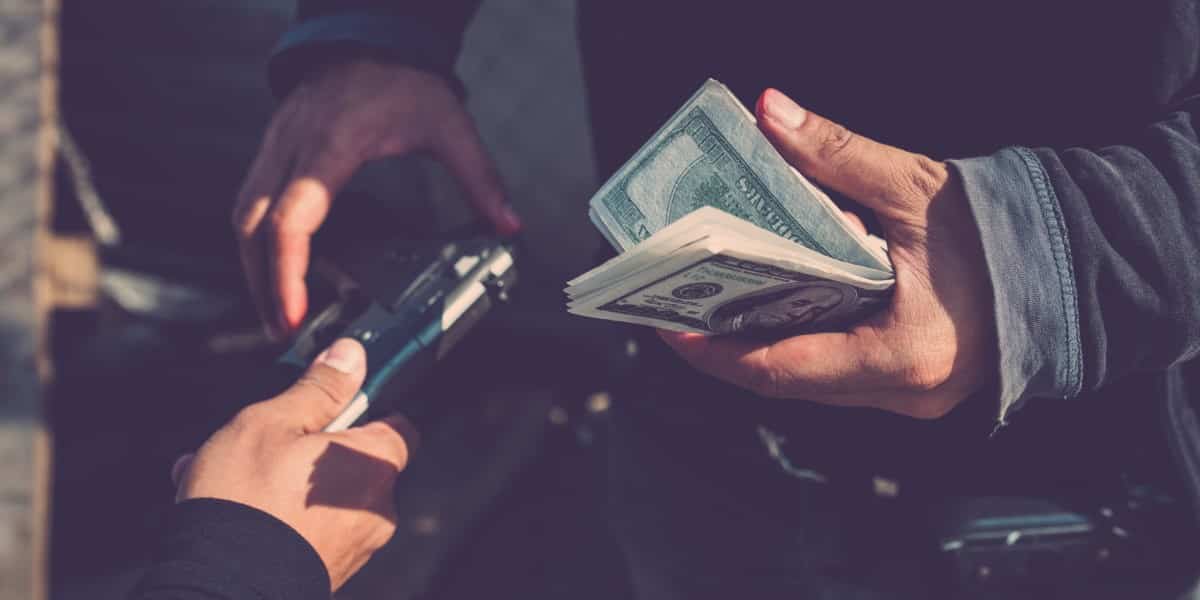In June 2009, Milwaukee officers Bryan Norberg and Graham Kunisch experienced a life-changing event during what seemed like a routine stop. A young man named Julius Burton resisted arrest and shot both officers in the face. Both officers survived, but with lasting consequences. Burton had acquired the gun through a straw purchase, having paid a friend $40 to buy it for him since he was underage. This case raises the question: what exactly is a straw purchase and what are the implications of such transactions?
Understanding Straw Purchases
A straw purchase takes place when Party 1 asks Party 2 to buy a firearm for them. Party 1 may have a criminal background, be underage, or may not want their name linked to Federal Form 4473, which is required for every legal purchase from a federally licensed firearm dealer.
It is a federal felony to falsely claim on the form that you are the actual buyer of the firearm, and penalties can include up to five years in prison and a $5,000 fine. If the gun is used in a crime, all involved parties – including the buyer, the individual, and the store – can be held liable. According to the Bureau of Alcohol, Tobacco, Firearms, and Explosives, approximately 50% of all illegally trafficked firearms begin as straw purchases.
The Devastating Effects of Straw Purchases
In 2016, a tragic event unfolded as a result of a straw purchase. A woman bought a gun and bullets at a Cabela’s store in Wilmington for her convicted felon boyfriend. The firearm eventually ended up in the hands of two underage individuals, and as a result, Keshall “KeKe” Anderson was caught in the crossfire and killed. KeKe’s family filed a lawsuit, alleging that Cabela’s should have recognized the signs of a straw purchase and stopped the transaction.
Negligent Entrustment and Straw Sales
Straw sales can fall under negligent entrustment laws. Under these laws, individuals or entities that allow another party to use their property (e.g., firearms, vehicles) knowing that the party is likely to misuse it can be held liable for any resulting harm. Gun stores can face negligence claims if they knowingly sell firearms to individuals who are legally prohibited from owning them.
Holding Sellers Accountable
Firearm dealers have a legal obligation to recognize and prevent illegal straw sales. While the majority of dealers take their responsibilities seriously, those who don’t may face legal consequences. In the case of Julius Burton, the store involved in the straw purchase was found liable and ordered to pay $6 million in damages to Officers Norberg and Kunisch.
Frequently Asked Questions about Straw Purchases
What is a straw purchase?
A straw purchase is an illegal transaction where an individual (Party 1) asks another individual (Party 2) to buy a firearm on their behalf. This usually occurs when Party 1 is unable to legally purchase a firearm due to age, criminal background, or a desire to avoid being connected to the firearm through Federal Form 4473.
Why are straw purchases illegal?
Straw purchases are illegal because they allow individuals who are legally prohibited from owning firearms to bypass background checks and other regulations, leading to a higher likelihood of firearm-related crimes and accidents.
What are the penalties for participating in a straw purchase?
Participating in a straw purchase is a federal felony, and penalties can include up to five years in prison and a $5,000 fine for the buyer. If a crime is committed with the firearm, all parties involved, including the individual, the buyer, and the store, can be held liable.
What is negligent entrustment?
Negligent entrustment is a legal concept in which an individual or entity is held liable for providing another party with an object (such as a firearm or vehicle) that the provider knew or should have known the recipient was likely to misuse, resulting in harm.
How can gun stores be held accountable for straw purchases?
Gun stores can be held accountable for straw purchases if they knowingly sell firearms to individuals who are legally prohibited from owning them or if they fail to recognize and prevent straw sales. They can face negligence claims, fines, and legal action.
What should someone do if they or a loved one were injured due to a straw purchase?
If someone is injured due to a straw purchase, it is crucial to consult with an experienced attorney who can help navigate the complex legal landscape, hold the responsible parties accountable, and seek justice for the harm caused.
If you or a loved one has been injured due to a straw purchase, it’s crucial to consult with an experienced attorney. Navigating the complex legal landscape can be challenging, but with the help of professionals like LaBovick Law Group, you can seek justice for the harm caused by irresponsible firearm sales.





